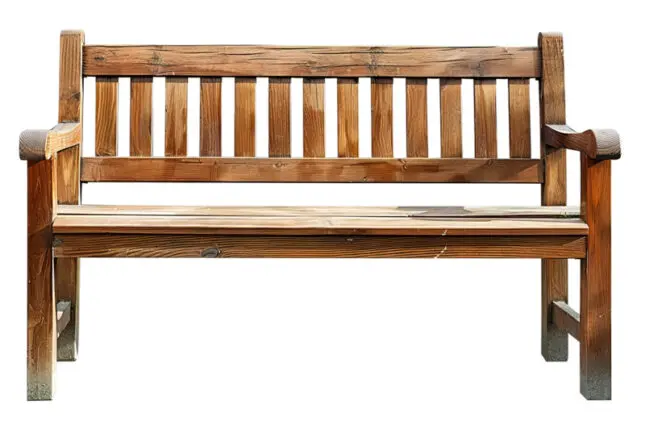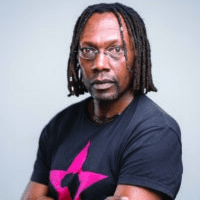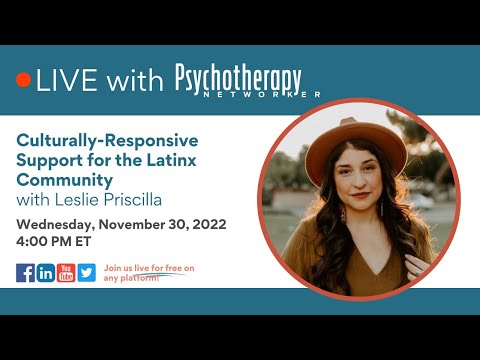Enjoy the audio preview version of this article—perfect for listening on the go.
As one of only a handful of psychiatrists in Zimbabwe—a country of nearly seventeen million people that is still reeling from the impacts of colonization, war, poverty, disease, displacement, and other traumas that often remain unnamed and unaddressed—I recognized early in my career that mental health professionals were not sufficient to meet the needs of a struggling populace. This is true outside of my country, too. But while not everyone can see a mental-health professional, most people have access to a vital untapped resource: the care, compassion, empathy, and wisdom of grandmothers—the unsung heroines of the world. The Friendship Bench initiative, which I cofounded with fourteen grandmothers, has leveraged this resource by training grandmothers to be lay psychotherapists. These women weave together the fabric of community so that people’s fears, shame, and loneliness might be alleviated, so that they might realize the burdens of life are never meant to be carried alone. Unfortunately, many societies do not value the contributions of the elderly as they should, but I am lucky to have been raised in Zimbabwe, a place that honors the unique leadership of those who’ve lived long lives and have the battle scars and profound awareness to show for it.
I know from firsthand experience that sitting with a grandmother who is listening to me with compassion while sharing her own vulnerability and humanity—as we talk beneath the trees on a wooden park bench in a safe space within the community—is far different from being in a crowded clinic, waiting to talk to a specialist who might only have a few minutes at most to assess my situation. And, of course, empathy and story sharing are seldom a part of the clinical process, as I know all too well from my own experience at a bustling hospital in Harare.
In the last decade, I have become more than convinced that the answers to the global mental health crisis do not lie in more diagnoses of disorders or prescriptions for medications. Opening minds and hearts to healing is possible only when ordinary people learn to support one another in extraordinary ways. Through the program of the Friendship Bench, everyday people have created healing communities that are learning to rebuild their lives from the wreckage of intergenerational and ongoing trauma.
***
“This idea of having a nice little list of problems is very academic, but in real life, it never works like that,” Grandmother Komai—tall, dark, and elegant—looked directly at me. We were in the local clinic where we’d been meeting since the grandmothers first taught me that mental health was simply an entry point into storytelling—a timeless tool that had been forgotten by many Zimbabweans but that had the potential to transform individuals, families, and communities. “This is the part where I think the training we received falls short.” She spoke softly, unlike some of the more opinionated and passionate Grandmothers.
“Tell me more,” I encouraged her.
“When a person shows up with numerous problems and all of them seem quite serious…” Her voice trailed off.
“Can you give me an example?” I asked.
“Well, you know, like someone is HIV positive, they are unemployed, they are in an abusive relationship, they have a teenage daughter who is pregnant—all these problems and more! When you have such a cocktail of problems and you ask a person which problem they would like to work on first, they sometimes panic from sheer helplessness. That’s when you get into the here-there, here-there exchange.”
“What do you mean?”
“Kunge ka bhora kanenge kachiti uko, apo, uko, kwese kwese,” Grandmother Komai exclaimed. This roughly translated to, “Like a ball all over the place, like Ping-Pong.”
“Ping-Pong? I don’t understand.”
“Let me explain,” Grandmother Kusi offered. “So you know when the client says, ‘I don’t know which problem to focus on, all of them are important, and we say we need to start with one, and the client says, ‘Can you choose for me?’ and I say, ‘I can’t possibly put myself in your shoes, no matter how hard I try, so you have to decide which one you want to start working on?’” She imitated the movement of a ball back and forth with her hands.
“And that can go on for a long while” added Grandmother Komai. “It’s a pattern. We’ve seen it in a lot of the clients. It’s like they’re carrying many sacks of heavy stuff, and they feel they can’t put any of them down. So the trick is to help them to let go.” She opened her arms and breathed deeply, as if she were releasing a burden.
“The process of getting them to let go of all but one is part of kuvhura pfungwa—opening the mind,” explained Grandmother Hwiza. “This is how you help them to see there is another way to deal with their problems.”
“But sometimes, they resist,” said Grandmother Kusi.
“And sometimes, you just sit and listen to them talk and talk about why they can’t let go of any of their problems. You just listen, until suddenly”—she clasped her hands together in an energetic gesture—”they get it, and they say, ‘I will start with this problem!’”
After a thoughtful pause, Grandmother Jack offered, “In a way, this therapy is not so much problem-solving but really helping people to let go. Unless you can let go, you can’t solve the problems, so accepting the need to let go comes first—and that is kuvhura pfungwa.”
I nodded. “Letting go makes a lot of sense,” I said. “But what would you say is the main thing that people have to let go of, that brings them to the Friendship Bench in the first place? The challenge they most struggle to release?”
“Poverty,” replied Grandmother Kusi. This was followed by the traditional Hongu (“Oh yes!”) of agreement from the others. “People here are poor, but when you also have poverty of thought, then you are truly screwed,” she added.
“How do you deal with poverty? I mean, how do you use the skills you were taught, together with your collective knowledge and wisdom, to address poverty?” I realized I’d never delved so deeply into this topic, not even with the clinicians I knew.
“The worst is when people come to the bench and define themselves through the lens of poverty,” Grandmother Kusi said with a sigh, “especially these young people. They are so lost.”
“But why are they lost?” I wanted to understand something the grandmothers seemed to have direct, lived experience with but that still felt elusive to me.
Grandmother Hwiza cleared her throat. “From what I’ve seen, they don’t have anchors in the community.”
This elicited another enthusiastic Hongu from the group. “They want to belong; they want to have meaning and purpose. And when they can’t find that, they turn to what is easily available—the things that help to numb the mind.” I knew what she meant by this. In general, these “things” encompassed a range of substances, from alcohol to codeine to cannabis to crystal meth. There was a serious substance abuse problem in Zimbabwe that had increased in the past few years. I had seen the numbers shift dramatically, and I understood that a well-orchestrated initiative meant to quash Zimbabwe’s ruling party’s opposition in primarily urban areas by eradicating slums and illegal housing—a movement known as Murambatsvina—probably had something to do with it.
“This is why kuvhura pfungwa is important—because when your mind is open, you see clearly and you can focus on one thing at a time,” Grandmother Hwiza concluded.
It made absolute sense. As a psychiatrist, I understood the importance and power of asking a client to slow down and breathe to halt a cascade of catastrophic thoughts and allow them to focus on what was immediate and present. I was moved by the grandmothers’ understanding of this process and their ability to be with someone under duress.
Grandmother Jack piped up. “The three most relevant steps that help us to address these issues are kuvhura pfungwa (opening the mind), kusimudzira (uplifting), and kusimbisa (strengthening). These are the three most important pillars of the therapy we provide on the bench!”
Grandmother Kusi nodded. “And when we use these terms, it removes the stigma that is associated with going to, say, a psychiatrist like you,” she added, gracing me with a playful smile. “These people feel a lot more comfortable sitting on a wooden bench and talking about their life challenges with a grandmother, using language they can identify with.”
I thought about how I’d initially been skeptical of the grandmother’s capacity to reserve their judgments against LGBTQ people or sex workers—people who were already marginalized by their communities because of traditional attitudes or simple ignorance. But I understood that even when the grandmothers laughed or gossiped, they took their responsibility as stewards of their community’s mental health very seriously. I also came to realize that many of the concerns I’d had were not as applicable to a community in Zimbabwe as I’d initially believed. Over and over again, the grandmothers would insist that my use of terms like “LGBTQ” and “sex workers” were Western labels for identities that had existed in Africa since time immemorial.
The grandmothers, through decades of lived experience, had developed an internal compass, a culturally rooted system to navigate through the emotional and psychological issues presented to them—a higher level of psychological consciousness, if you like. They possessed an ability to intuitively see the link between feelings, thoughts, moods, and behavior and to apply this intuitive ability in their problem-solving therapy. They also understood that a shift would come through breaking the cycle of negative thoughts and feelings at the behavior level by scheduling activities, such as gardening or going to local community clubs, that would lead to positive, rewarding behavior. I had little doubt that many of them had faced the same issues they were counseling others to move through: domestic violence, poverty, disease, sexual shaming, and the list went on. I continued to be astonished by the way they could hold difficult experiences with reverence, which was perhaps how they had been able to make the Friendship Bench such an essential anchor in the community.
While they held all manner of deep tragedy with compassion, they were not bereft of levity. I was familiar with the concept of compassion fatigue, the phenomenon of secondhand stress and trauma that results from helping others who are going through difficult situations; it’s something that many mental health workers struggle with. But I marveled at the effortless way in which the grandmothers could create a safe space for their clients’ sharing without being negatively affected or letting them take a toll on their own well-being.
It wasn’t unusual for them to suddenly get up and break into song and dance when they debriefed together or when they were discussing difficult cases with me. This custom came from traditional African funerals and other ritualized events. It provided a cathartic release of any residual emotions that might be lingering — a very different approach from the Western model of sitting in a hushed room and talking matter-of-factly about difficult emotions.
And, as the grandmothers would constantly and gently remind me, “At our age, we’ve seen everything! Not only have we seen everything—we’ve done everything.” This would invariably be followed by a fit of cackles and giggles, which would in turn make me smile and soften, feeling reassured that I was in the right place with just the right people to provide the help their community desperately needed.
***
Across the globe, we are beginning to recognize that the cultivation of community is crucial, especially given the number of people who struggle with loneliness and isolation. When we remember that we are not alone—that, in fact, we have priceless shared resources right under our noses, though we may not have seen them as such or even been encouraged to value their wisdom—transformation can happen. And oftentimes, that transformation can be life changing.
As someone who routinely felt alone in my own occupation—an “expert” doling out prescriptions and advice to the less fortunate—my work with the Friendship Bench led me not only to a greater sense of purpose but to an awareness of my own belonging within a community of people who saw me as much more than the doctor with the authority to “fix” difficult situations. The grandmothers healed me, as well, by helping me recognize and address the wounds I hadn’t even realized I’d been carrying. They didn’t do this with a prescription or any kind of conventional solution, but with the medicine of empathy and listening, which allowed me a space to grieve, come home to myself, and wholly dedicate myself to a process and a protocol that can save lives—something I know, because the process saved mine.
From the grandmothers, I learned that together we are greater than the sum of our parts. Every one of us carries a powerful seed that is meant to grow and be shared for the betterment of our community and world. My sincere wish is that all of us come to understand that while pain may be inevitable on this planet, so is healing. And somewhere in the world, there’s a grandmother on a bench, beckoning you over with a welcoming smile—urging you to sit down, take a load off, and share what’s in your mind and heart.
***
Adapted from The Friendship Bench: How Fourteen Grandmothers Inspired a Mental Health Revolution. Copyright © 2025 by Dixon Chibanda, MD. Reprinted with permission from New World Library.www.newworldlibrary.com
Dixon Chibanda
Dixon Chibanda, MD, is the author of The Friendship Bench: How Fourteen Grandmothers Inspired a Mental Health Revolution. He is a professor of psychiatry at the University of Zimbabwe and the London School of Hygiene & Tropical Medicine and director of the African Mental Health Research Initiative (AMARI). His “Why I Train Grandmothers to Treat Depression,” TED talk has been viewed over 3.2 million times and the Friendship Bench project he founded has been featured in major media like The PBS News Hour, New York Times, LA Times, BBC World Service, and more. Visit him online at http://www.friendshipbench.org.













